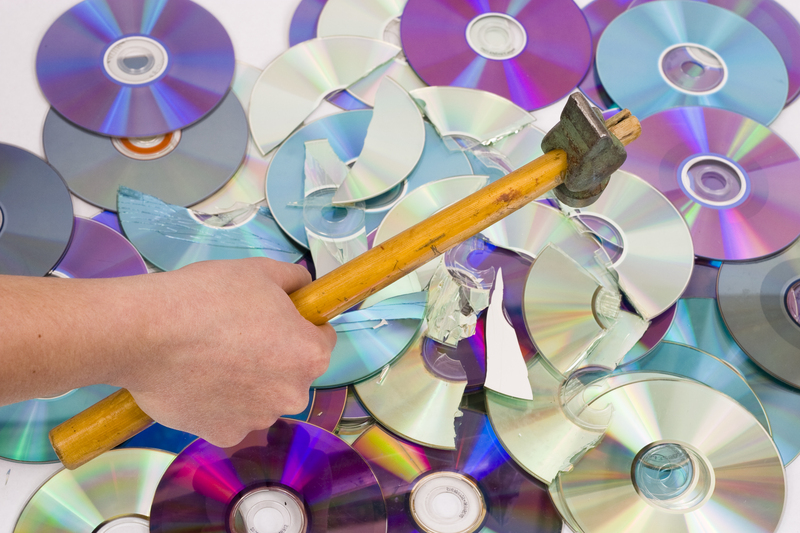Get Rid of Bulky Waste Items Without Breaking the Bank
Disposing of large, unwanted items--like broken furniture, appliances, mattresses, or yard debris--can often lead to headaches and unexpected expenses. Bulky waste removal is essential for keeping your living space clean, safe, and clutter-free. But how can you get rid of bulky waste items without spending a fortune? In this guide, we'll explore the most cost-effective and efficient strategies for handling your bulky items responsibly and affordably.

What is Bulky Waste?
Bulky waste--sometimes called 'bulk trash' or 'large item waste'--refers to items that are too big to fit in regular curbside collection bins. Typical examples include:
- Old sofas, recliners, and couches
- Broken beds and mattresses
- Large household appliances (fridge, washers, dryers)
- Carpets and rugs
- Desks, wardrobes, and other big furniture pieces
- Yard waste, tree limbs, and branches
These items often require special handling and cannot be disposed of through standard trash services--which is why it's important to discover affordable, sustainable solutions.
Why Proper Bulky Waste Disposal Matters
Improper disposal of large items can have serious consequences, such as:
- Fines or legal issues if dumped illegally
- Negative environmental impact
- Creating safety hazards in neighborhoods
*Proper and responsible disposal* ensures that materials are recycled when possible, and helps keep communities clean.
Cost-Effective Ways to Get Rid of Bulky Waste Items
1. Use Local Council or Municipal Collection Services
Many cities and towns offer bulky item pick-up services for residents, often for free or for a nominal fee. Check your municipality's website or call their waste department to see if they offer scheduled or on-demand collection of large items.
- Advantages: Convenient, reliable, often affordable or free
- Tips: Book in advance--slots fill up quickly, be sure to follow guidelines on what's accepted and how to prepare items for collection
2. Bulk Waste Drop-Off Locations
Cities may operate waste transfer stations or recycling centers where residents can drop off large items. Typically, there's *no or low-cost* for certain types of bulky waste.
- Bring proof of residency
- Check accepted items in advance
- Some centers host free "amnesty days" for bulk waste disposal
3. Donate Usable Items
*Don't pay to dump if your items are still in good shape!* Many charities, non-profits, and thrift stores offer free pick-up services or convenient drop-off points for furniture, appliances, and more. This extends the life of your items, helps your community, and reduces landfill waste.
- Popular donation centers: Goodwill, Salvation Army, Habitat for Humanity ReStores
- Look for local church groups or community organizations
- Consider posting "free" listings online (Facebook Marketplace, Craigslist, Buy Nothing groups)
4. Sell or Give Away Bulky Items Online
If your item is still usable, online classifieds can be a great way to get rid of bulky waste for free--or even make some money back!
- Great platforms: Craigslist, Facebook Marketplace, OfferUp, Freecycle, Nextdoor
- Tips: Be clear about item condition and dimensions, prioritize local pickup to avoid shipping problems
- For fast results, list as "curb alert" or "free pickup"
5. Host a Garage or Curbside Giveaway
A neighborhood garage sale or curbside giveaway is an excellent way to dispose of multiple large items at once. Place items on your curb with a "FREE" sign--they may get picked up quickly, especially if you mention them on local apps or social media groups.
- Clear items from the street at night to comply with local ordinances
6. Share a Junk Removal Dumpster
If you're doing a big cleanout--or if neighbors have similar needs--consider sharing the rental of a junk removal dumpster or dumpster bag service. Splitting the cost with others can make this an inexpensive option for getting rid of lots of bulky waste.
- Calculate size needs in advance
- Ensure you know what is and isn't allowed in dumpsters
7. Upcycle, Repurpose, or Reuse
*With a little creativity, many bulky items can get a second life.* Repurpose wood furniture, old doors, or pallets for DIY projects!
- Turn a broken dresser into garage storage
- Use old mattresses as outdoor seating or garden planters (ensure safe materials)
- Repurpose appliances for outdoor storage or decoration
8. Hire Affordable Junk Removal Services
If you have items that are too heavy, awkward, or unsafe to move on your own, look for *low-cost junk removal companies* or local handymen. Prices vary, but you can often save money by:
- Getting quotes from multiple local providers
- Limiting pickups to easily accessible items
- Grouping items together for one-time pickup
Tip: Always ask about discounts, minimum charges, and what's included in the base price.
Tips for Reducing Bulky Waste Disposal Costs
- Disassemble furniture and large items to make them easier and cheaper to transport or dispose of.
- Plan ahead: Don't wait until moving day or a renovation to deal with bulky items--fees are lower outside peak times.
- Group items with neighbors: Sharing the cost of removal or dumpster rental benefits everyone.
- Separate recyclable components (e.g., metal, wood) to avoid mixed-waste surcharges and maximize responsible disposal.
Common Mistakes to Avoid When Disposing of Bulky Waste
- Illegal dumping: Never leave bulky items on sidewalks or in alleys unless scheduled for pickup--it's illegal and punishable by fines.
- Ignoring recycling opportunities: Many bulky items contain valuable materials that can be recycled. Always check your city's recycling guidelines.
- Paying too much for removal: Compare options--some paid removal companies charge high minimum fees or per-item costs.
- Dumping hazardous materials: Items like refrigerators, air conditioners, or electronics require special disposal due to chemicals and should never go to landfill with other waste.
FAQ: How to Dispose of Bulky Waste Items Without Spending a Fortune
Can I put bulky waste items out with my regular trash?
Usually, no. Most curbside trash programs have size or weight limits. Check your municipality's guidelines; unscheduled dumping can result in fines.
How can I get free bulky item pickup?
Many cities and towns offer annual or semi-annual free pickups, or amnesty days, for oversized waste. Some charities also pick up for free if items are in good condition.
What should I do with an old mattress or box spring?
Some mattresses can be donated, recycled, or even repurposed. Many areas have special recycling programs for mattresses. Otherwise, check for scheduled bulky waste collections.
How do I avoid extra fees for bulky item removal?
Prepare and group items, compare quotes from multiple providers, and always check city programs before paying for private services.
Benefits of Responsible Bulky Waste Disposal
- Environmental protection: Recycling and proper disposal limits pollution and reduces landfill pressure.
- Community safety: Removes fire, pest, and trip hazards from neighborhoods.
- Charity and reuse: Helps others by donating usable items.
- Compliance: Avoids costly fines and legal issues.

Conclusion: Smart and Affordable Bulky Waste Disposal
No matter what types of large items you need to get rid of, you don't have to overspend or resort to illegal dumping. Take advantage of free or low-cost bulky waste removal services, donate usable items, recycle whenever possible, and team up with neighbors for shared solutions.
Getting rid of bulky waste items on a budget is not only possible--it's often the better choice for your wallet, your community, and the environment. By planning ahead, making the most of city programs, and exploring donation and resale options, you can declutter your space responsibly and affordably.
*Looking for more ways to dispose of bulky waste affordably? Contact your local city services or check community boards for upcoming collection events!*
Key Takeaways: Dispose of Bulky Waste for Less
- Check local council programs for free or inexpensive pick-up and drop-off options.
- Donate or sell usable items online to avoid disposal fees and extend their useful life.
- Recycle whenever possible to protect the environment.
- Plan ahead and group removal needs with neighbors for cost-saving benefits.
By following these proven strategies, you'll get rid of bulky waste items without breaking the bank--so you can enjoy a cleaner, safer, and more organized space!
